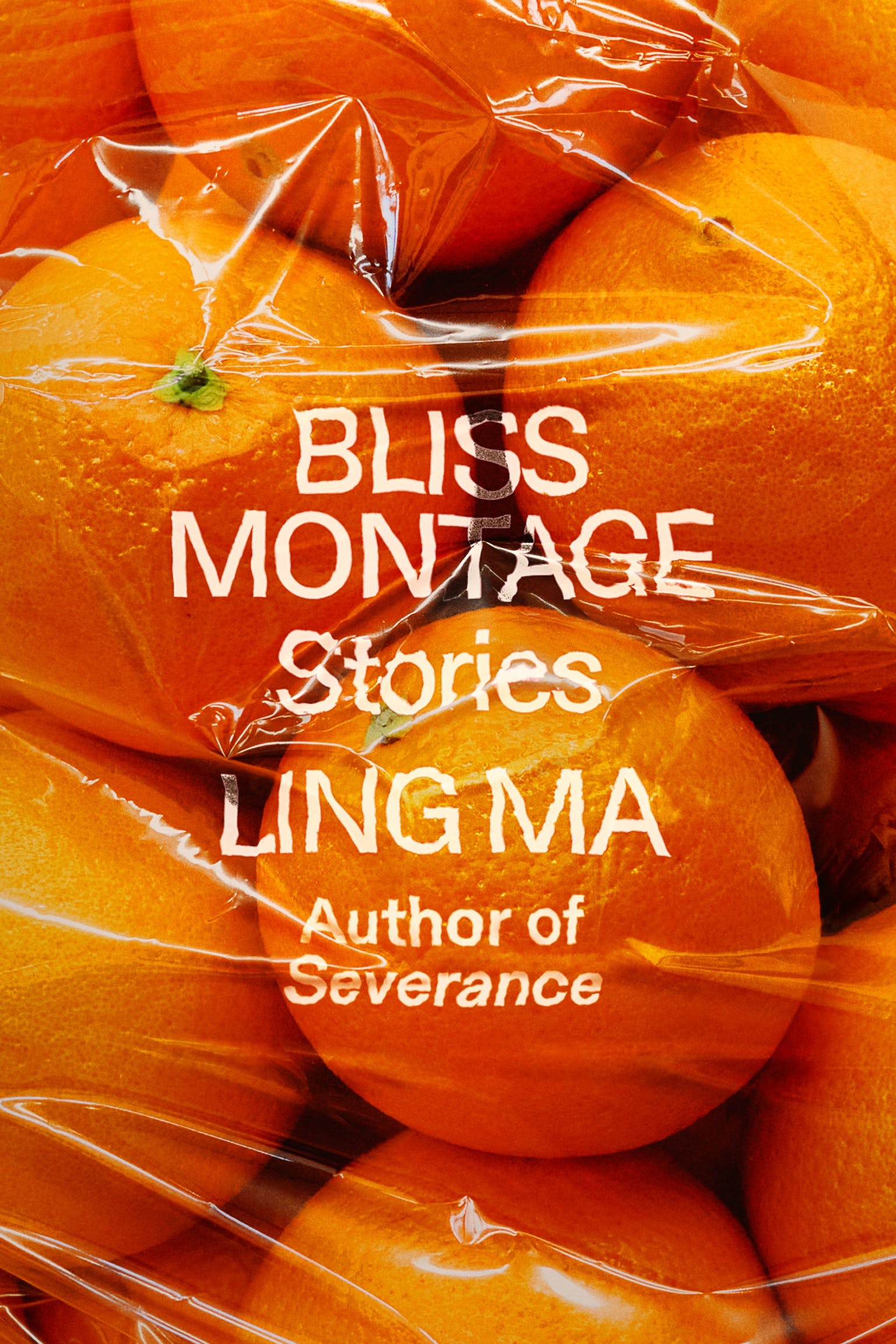Bliss Montage (Farrar, Straus and Giroux), Ling Ma’s second book and first collection of stories, is ostentatious in neither syntax nor storytelling. Nevertheless, the collection guts and renovates the genre by refusing to draw a distinction between realism and fable. Call it speculative fiction if you want, but the ground situation that informs “Los Angeles”—the wife of a wealthy investor shares their domestic compound with all 100 of her ex-boyfriends—is about as reasonable as homeless University of California students being “allowed” to sleep in their cars on campus. This initial story sets the tone for Bliss Montage’s woozy relationship with plausibility. Freed from the constraints of allegory or standard-issue plot mechanics, readers are instead left to reflect on more essential things, most prominently, humanity’s ability to absorb and inflict harm.
The narrator of “Oranges,” for example, doesn’t need to follow her abusive ex-boyfriend home to settle a score (his life is perpetually in shambles), and it’d probably be better for her psyche if she didn’t. Yet despite her aversion to the support group she was talked into joining, the desire to communicate the story of her abuse to her ex’s new girlfriend is too great. The whistleblowing, the response to it, and the ensuing events interrogate whether the ex-boyfriend was preordained to repeat his past behavior. Rather than a reenactment of the trauma plot, readers are instead asked to ponder why the narrator is still attached to the toxic relationship: public safety or revenge.
Many of the stories work a similar deconstruction of tropes—the love affair, the friendship fostered by drug addiction, the tenuous nature of academic relationships—and rearrange them to accentuate how time and random exposure to other human beings distresses one’s consciousness. This is perhaps best exemplified in the magnificent “Peking Duck,” which isn’t metafictional exactly, but nonetheless unpacks the mythologies of its plot. The titular dish sets the stage for a cornucopia of senses as aspirations. Implied in the story’s movement is whether anyone has the right to editorialize individuals’ aspirations at all.
“It happened to me, not to us,” the narrator’s mother says, admonishing her daughter for wresting a frightening experience from her and using it as material for a short story. Internally, the narrator knows this is a fiction (she was there); externally, she lets it lie because she knows her mother needs the idea of improving her daughter’s life via labor to function.
“I wouldn’t move forward if I just kept thinking about it,” her mother adds, later on. A classically stoic dignity, this. It’s a testament to Ma’s own sense of dignity, as well as the restlessness of her intelligence, that she allows it to stand while methodically assessing the emotional wreckage.
Read more about Bliss Montage:
Sasha Frere-Jones, 4 Columns
Michele Filgate, The Washington Post
Maureen Corrigan, NPR
Kathy Chow, Los Angeles Review of Books
Starred Kirkus review



